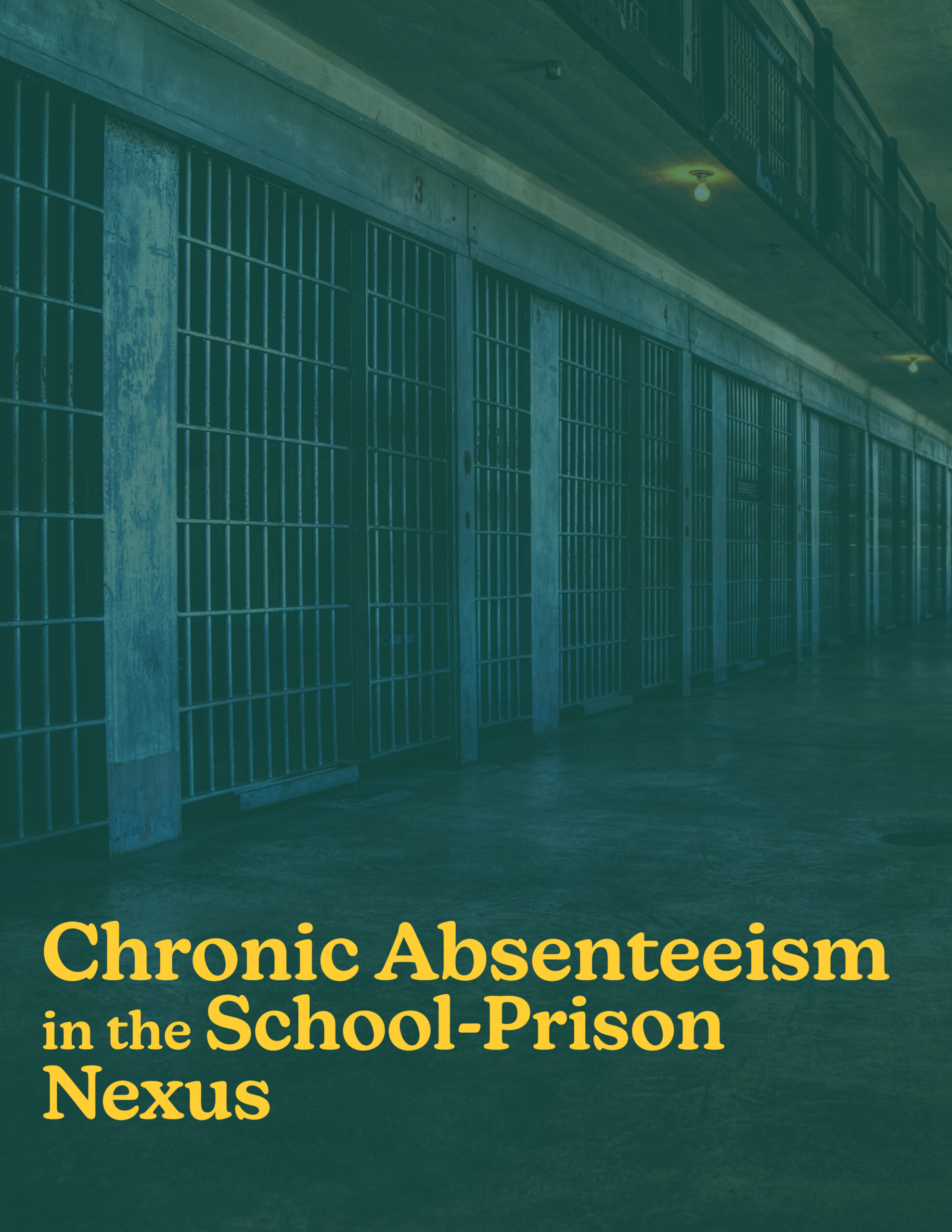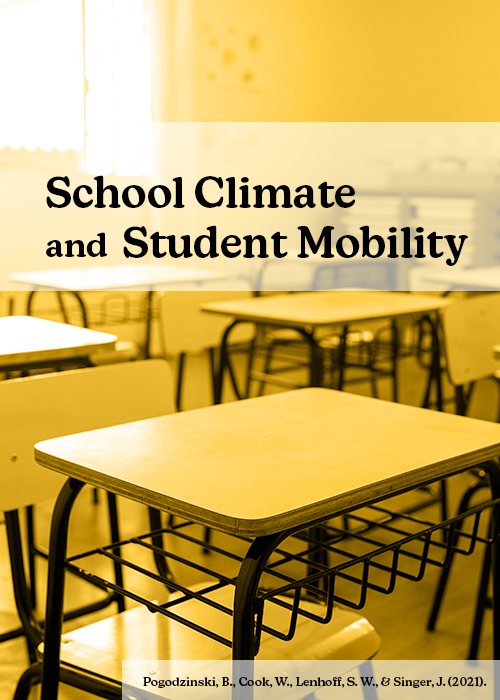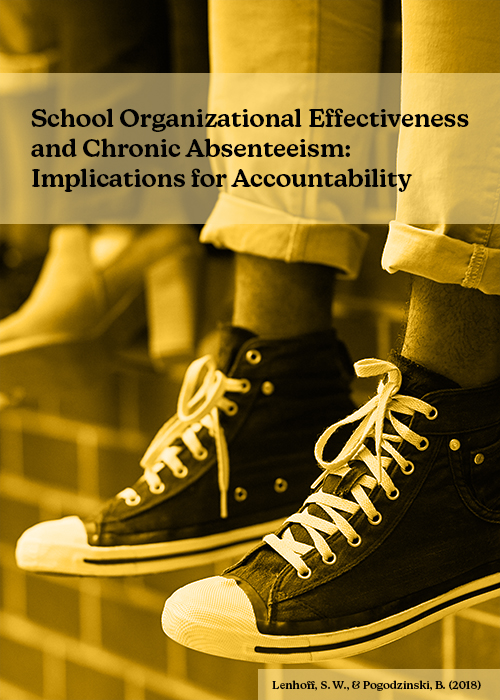Topic: School Culture
Parent Sensemaking and School Choices Amidst Educational Controversies
From our 2023 collaborative study with the National Center for Research on Education Access and Choice (REACH), this presentation explores the relationship between national political discourse, parent sensemaking, and School Choice. This longitudinal study aims to better understand the impact of national political discourse around race and gender on parents' School of Choice.

Chronic Absenteeism in the School-Prison Nexus
This qualitative case study examines how attendance management practices are designed and implemented in a large urban school district and explores the empirical and conceptual relationship between student behavior and attendance management within the “school-prison nexus.” We use interviews with parents, high school students, and staff charged with reducing chronic absenteeism to demonstrate how managing students’ attendance through intervention plans, student monitoring, and threats of legal action have implicit and explicit parallels to the management of student behavior in schools and could be considered a potential mechanism through which the school-prison nexus functions. We conclude with implications for schools and districts as they seek ways to reduce chronic absenteeism without contributing to the over-surveillance and punishment of high school youth.

Chronic Absenteeism in the School-Prison Nexus
This qualitative case study examines how attendance management practices are designed and implemented in a large urban school district and explores the empirical and conceptual relationship between student behavior and attendance management within the “school-prison nexus.” We use interviews with parents, high school students, and staff charged with reducing chronic absenteeism to demonstrate how managing students’ attendance through intervention plans, student monitoring, and threats of legal action have implicit and explicit parallels to the management of student behavior in schools and could be considered a potential mechanism through which the school-prison nexus functions. We conclude with implications for schools and districts as they seek ways to reduce chronic absenteeism without contributing to the over-surveillance and punishment of high school youth.

Attendance Agent Networked Improvement Community
This study explores the implementation and effectiveness of a key district strategy for reducing chronic absenteeism: the use of school-based attendance agents and a multi-tiered system of support. We examine the organizational and environmental conditions that shape agents’ work, their conceptual understanding of the problem of absenteeism, their use of improvement methods to learn how to improve their practice, and the alignment of the strategy with the nature of the problem in Detroit.

School Climate and Student Mobility
School choice has been accompanied by an increase in student mobility. Although changing schools can benefit students, research has shown that it is often associated with negative student and school outcomes. This study sought to better understand the relationship between school climate and the likelihood of student mobility across K-8 schools in Detroit, a city marked by a high level of school choice options. We found conflicting evidence of a relationship between measures of school climate as measured by the 5Essentials survey and student mobility. We discuss these findings in the context of potential sector differences, which may overshadow parental preferences for organizational characteristics.

School Characteristics and Student Mobility in Detroit
Within- and between-year mobility was particularly high among Detroit resident students compared to other students in Metro Detroit. Students were less likely to make a within-year move if they attended a school categorized as having a high rating in organizational climate, as measured by the 5Essentials surveys. Rates of school-level chronic absence were associated with both within- and between-year mobility, suggesting that other elements of school organizational climate may influence student movement.

Exiting Detroit for School: Inequitable Choice Sets and School Quality
Students who exited Detroit for school had lower quality schools (test score performance, teacher and student stability, new teachers, discipline) in Detroit than students who stayed. Students who attended a non-Detroit school enrolled in schools that had, on average, higher discipline rates, more new teachers, lower teacher retention, and higher test scores than their choice sets in Detroit. The physical and cultural geography of students’ neighborhood choice sets varied dramatically across the city. Students who lived in neighborhoods where most of their neighbors went to just a few schools were less likely to exit.

School Organizational Effectiveness and Chronic Absenteeism: Implications for Accountability
Chronic absenteeism in K-12schoolsis strongly associated with critical educational outcomes such as student achievement and graduation. Yet, the causes of chronic absenteeism are complex, with environmental, family/individual, and school factors all affecting the likelihood of a student attending school regularly. This exploratory study examines whether school organizational effectiveness has the potential to moderate external influences on chronic absenteeism. Using school-level scores from the 5Essentials surveys, we find that, in traditional public schools, schools that are organized for effectiveness have lower rates of chronic absenteeism, while controlling for student demographics and grade level. In particular, schools with higher scores for “involved families” have lower chronic absenteeism. While charter schools in Detroit have significantly lower rates of chronic absenteeism than traditional public schools, we did not find an association between organizational effectiveness and chronic absenteeism in charter schools. This suggests that student sorting by school type may produce variation in chronic absenteeism rates that is not moderated by school actions. These findings have important implications for practice and policy, as educators seek to reduce chronic absenteeism in response to pressures from high-stakes accountability systems.



